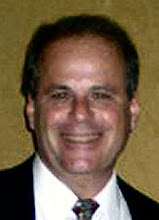I was both surprised and delighted to learn that the Museum of Family History was mentioned on a radio program during the morning of July 12th. The program, "The Radio Rabbi," is on every Sunday morning from 9 to 10 a.m. and is hosted by Rabbi Barbara Aiello.
Rabbi Aiello, who hosts the morning radio program in the Tampa-Sarasota, Florida area, somehow found my website on the Internet and spoke about it (by herself) on her program for more than three minutes. She directly quoted parts of the introduction I wrote for the Yiddish World segment of the Museum (www.museumoffamilyhistory.com/y.htm).
I must admit that hearing someone on the radio speak glowingly about my own work felt very strange. After all, someone was reading directly from my website, reading my sentiments, on the radio yet, for more than three minutes! This was quite a compliment. It goes to show you that with the Internet, word can spread quite quickly (hopefully always in a good way).
I hope, of course, that as many people as possible learn about the Museum of Family History, not just in the United States but all over the world. This can happen in a number of ways: on the radio, in the print media, and most often by word-of-mouth, email and the Internet.
Interestingly enough, Rabbi Barbara is the rabbi of the first active synagogue in Calabria, Italy, in over 500 years, and she is director of the Italian Jewish Cultural Center of Calabria (IjCCC), She is also the first woman rabbi and first modern liberal rabbi in Italy.
Here is a transcript of what Rabbi Aiello said about the Museum on Sunday A.M. July 12, 2009:
“Let me tell you a little bit about a wonderful website that I found called 'The Museum of Family History,’ and it is a virtual museum....you click on the website and you take a look at what’s in the museum virtually. And the museum itself is dedicated to keep the Yiddish language and culture alive, and [it is written]:
'As a second-generation Jewish-American growing up in New York, I had relatively little exposure to the Yiddish language. I heard Yiddish spoken at my grandparents' apartment in Brooklyn (especially when they didn't want me to know what they were saying), when they played the occasional recording of Yiddish music on the Victorola, and perhaps some Yiddish conversation in the shul. I have never taken a class in Yiddish, so I do try to study it a bit on my own from time to time.
So for most of my life then, I have had no true Yiddish speakers in my family. All I ever heard during this time from Yiddish and non-Yiddish speakers alike is how sad it was that there were so few Yiddish speakers left, that the language would eventually die out. Some did take pride in the fact that they could speak a few phrases in Yiddish or could understand a little when it was spoken. Others would have a sentimental connection to Yiddish, especially when they heard songs like "My Yiddishe Mame." Certainly, once their Yiddish-speaking parents passed on and the number of Yiddish speakers that they were exposed to diminished, their knowledge of Yiddish diminished too. Even in Eretz Israel, where there are still many Yiddish speakers, the preferred spoken language is Hebrew.
Now Yiddish as we know, is one of the few pan-European languages spoken before the Second World War. It imbued nearly every aspect of Jewish life and culture. And for this reason alone, such a loss of the language and culture would seem like a shanda (a shame) to anyone with a deep appreciation of Jewish history, and that the history of the wonderful world of Yiddish life is definitely worth saving…
Now one of the aims of the Museum of Family History is to keep the Yiddish language and culture alive; and how wonderful it would be to remind us in some small way many of those who were born into Yiddish-speaking families once again of the beauty of the Yiddish language and culture. Perhaps though, it is even more important to make newer generations aware of what role Yiddish played in Jewish life. Making people aware is perhaps all we can do as individuals.” That’s quite a lot. “In the absence of a multitude of Jewish communities that still speak Yiddish, without the hard work of many who could talk about the Yiddish language to their children and grandchildren or speak publicly to Jewish groups about the importance of preserving Yiddish culture, the forecasters of the extinction of the Yiddish language might be right. All we can do however is try however, from the depth of our Jewish souls, each in our own unique and heartfelt way.'"
My thanks to Rabbi Barbara Aiello for thinking enough of my work to mention it "on the air."
Subscribe to:
Post Comments (Atom)




No comments:
Post a Comment